
Trindade: A Hidden Gem in São Tomé and Príncipe
Nestled in the lush greenery of São Tomé and Príncipe, Trindade is a small town that offers a serene escape from the hustle and bustle of city life. This charming town is surrounded by verdant hills, providing visitors with a tranquil environment perfect for relaxation and exploration. Adventure seekers will find plenty to do in Trindade. Hiking trails snake through the surrounding jungle, leading to breathtaking viewpoints and cascading waterfalls. The town itself is rich in culture and history, with colonial-era buildings and local markets that offer a glimpse into the daily lives of its residents. One of the town's highlights is its proximity to the Obo National Park. Here, visitors can experience the diverse flora and fauna of São Tomé and Príncipe. The park is home to a variety of endemic species, making it a paradise for bird watchers and nature enthusiasts alike. For those interested in local cuisine, Trindade offers a range of dining options that showcase the island's culinary heritage. Fresh seafood, tropical fruits, and traditional dishes are readily available, providing a delicious end to a day of exploration. Whether you're looking to immerse yourself in nature, delve into local culture, or simply unwind, Trindade is a destination that promises a memorable and enriching experience.
Local tips in Trindade
- Bring sturdy walking shoes for hiking the jungle trails.
- Visit the local markets early in the morning for the freshest produce and seafood.
- Carry insect repellent to protect against mosquitoes, especially when exploring the Obo National Park.
- Hire a local guide to enhance your experience of the region's natural and cultural attractions.
- Don't miss tasting Calulu, a traditional dish made with fish or chicken, vegetables, and palm oil.
Trindade: A Hidden Gem in São Tomé and Príncipe
Nestled in the lush greenery of São Tomé and Príncipe, Trindade is a small town that offers a serene escape from the hustle and bustle of city life. This charming town is surrounded by verdant hills, providing visitors with a tranquil environment perfect for relaxation and exploration. Adventure seekers will find plenty to do in Trindade. Hiking trails snake through the surrounding jungle, leading to breathtaking viewpoints and cascading waterfalls. The town itself is rich in culture and history, with colonial-era buildings and local markets that offer a glimpse into the daily lives of its residents. One of the town's highlights is its proximity to the Obo National Park. Here, visitors can experience the diverse flora and fauna of São Tomé and Príncipe. The park is home to a variety of endemic species, making it a paradise for bird watchers and nature enthusiasts alike. For those interested in local cuisine, Trindade offers a range of dining options that showcase the island's culinary heritage. Fresh seafood, tropical fruits, and traditional dishes are readily available, providing a delicious end to a day of exploration. Whether you're looking to immerse yourself in nature, delve into local culture, or simply unwind, Trindade is a destination that promises a memorable and enriching experience.
When is the best time to go to Trindade?
Iconic landmarks you can’t miss
Praia Inhame Eco Lodge
Discover the natural beauty of Praia Inhame Eco Lodge, a serene escape in São Tomé and Príncipe's breathtaking landscapes, perfect for eco-conscious travelers.
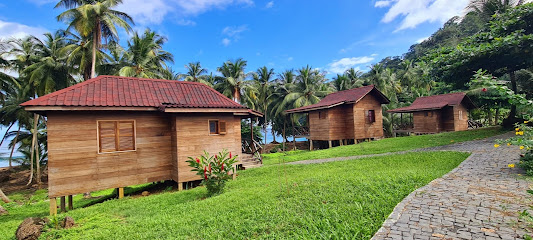
Saint Nicholas Waterfall
Experience the breathtaking beauty of Saint Nicholas Waterfall, a serene oasis tucked away in the lush landscapes of Monte Café, São Tomé and Príncipe.
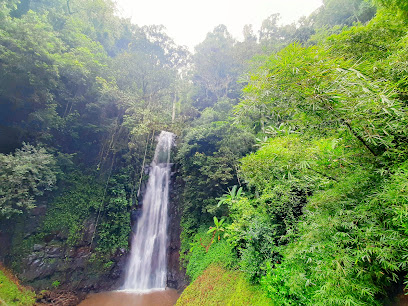
Equator Landmark
Visit the iconic Equator Landmark in Porto Alegre, where history and geography meet in a stunning natural setting, perfect for any traveler.
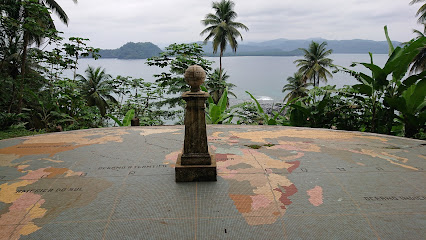
Jardim Botânico do Bom Sucesso
Explore the lush landscapes and rich biodiversity at Jardim Botânico do Bom Sucesso, a tranquil escape in Milagrosa perfect for nature lovers.
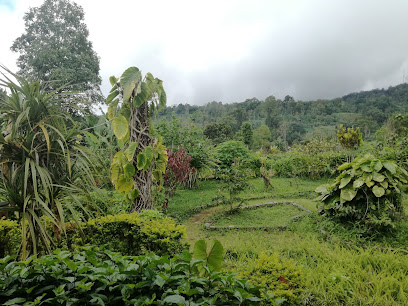
Claudio Corallo - Cacao & Caffe São Tomé e Príncipe
Experience the rich flavors of São Tomé's finest artisan chocolates at Claudio Corallo, where passion meets craft in every delightful bite.
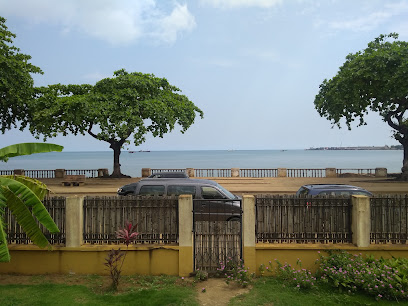
Praia das Sete Ondas
Discover the tranquil beauty of Praia das Sete Ondas, a stunning beach on São Tomé Island, perfect for relaxation, swimming, and unforgettable sunsets.
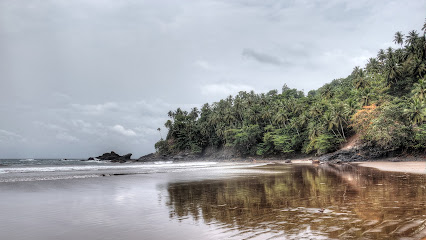
São Sebastião Museum
Explore São Sebastião Museum in São Tomé - a captivating journey through the rich history and culture of São Tomé and Príncipe in a stunning coastal fortress.
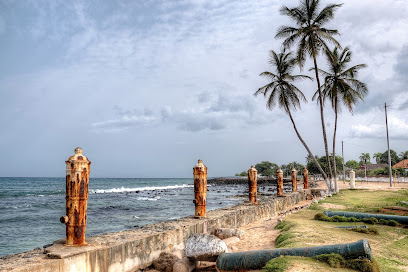
90 Graus Esplanada Bar
Experience the vibrant flavors of São Tomé at 90 Graus Esplanada Bar, a top destination for pizza lovers seeking a delightful culinary adventure.
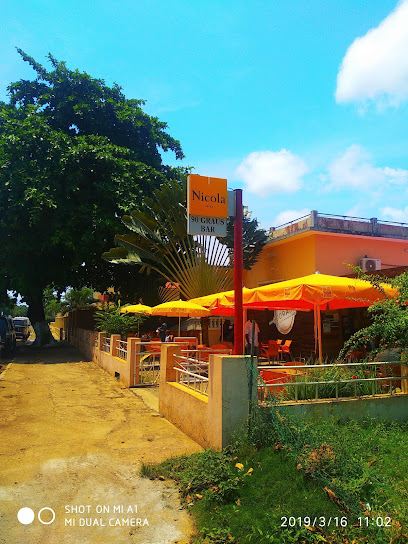
Aeroporto Internacional de São Tomé e Príncipe
Explore the vibrant gateway to São Tomé and Príncipe, where every arrival is the beginning of an unforgettable tropical adventure.
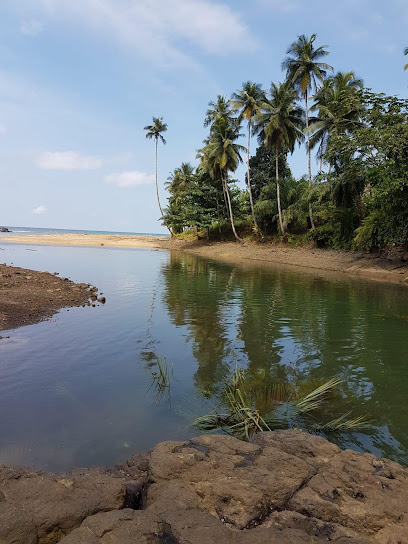
Praia dos Tamarindos
Experience the unspoiled beauty of Praia dos Tamarindos, a tranquil beach paradise on São Tomé Island, perfect for relaxation and exploration.
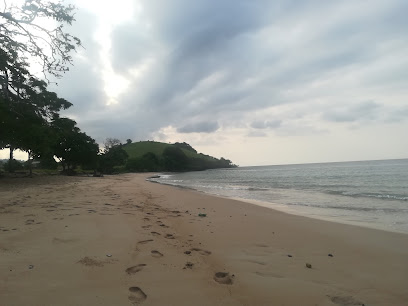
São Tomé Paradise Tours
Discover adventure and beauty in São Tomé with São Tomé Paradise Tours, your gateway to unforgettable experiences in this tropical paradise.
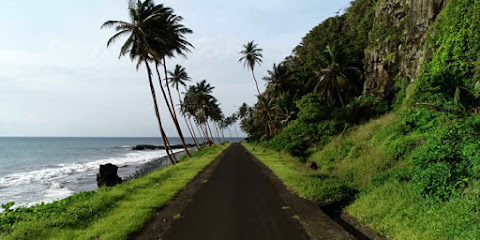
Roça Água-Izé
Experience the rich history and natural beauty of Roça Água-Izé, an enchanting open-air museum in the heart of São Tomé.
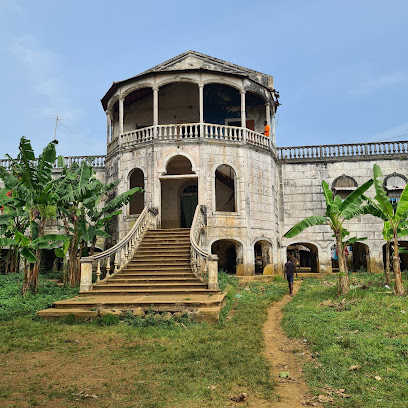
Praia Micondo
Discover the tranquil beauty of Praia Micondo, a pristine beach in São Tomé, where golden sands and azure waters await your arrival.
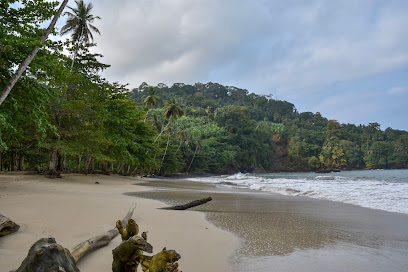
Praia Lagarto
Explore the pristine sands and tranquil waters of Praia Lagarto, a hidden gem in São Tomé, perfect for relaxation and beachside adventures.
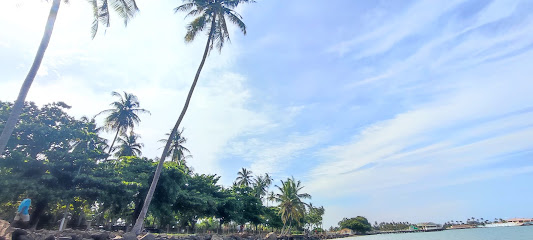
Obo National Park
Explore the breathtaking biodiversity and stunning landscapes of Obo National Park in São Tomé and Príncipe, a paradise for nature lovers.
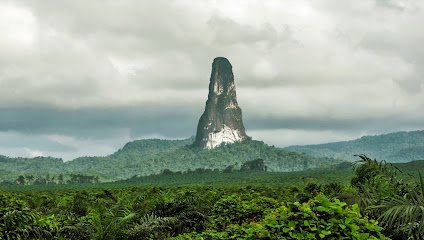
Unmissable attractions to see
Saint Nicholas Waterfall
Experience the enchanting beauty of Saint Nicholas Waterfall, a stunning natural treasure in Monte Café, São Tomé and Príncipe, surrounded by vibrant landscapes.
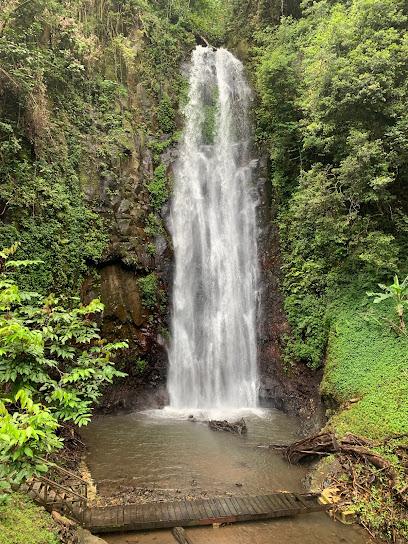
Hellmouth
Discover the captivating allure of Hellmouth in Ribeira Afonso, a breathtaking tourist attraction blending stunning landscapes and rich local legends.
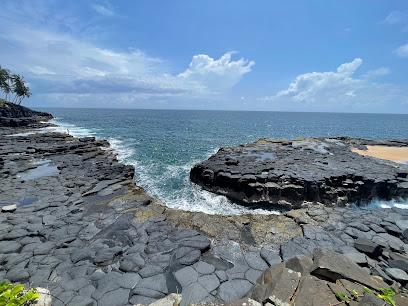
Museu Do Cafe
Discover the rich heritage of coffee at Museu Do Café in Monte Café, São Tomé and Príncipe, where every sip tells a story of tradition and flavor.
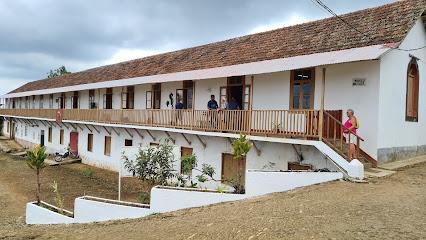
Jardim Botânico do Bom Sucesso
Explore the lush landscapes and diverse plant species at Jardim Botânico do Bom Sucesso, a serene botanical garden in Milagrosa perfect for relaxation.
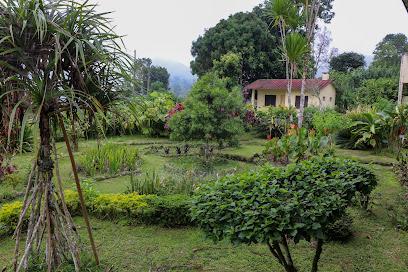
São Sebastião Museum
Explore the São Sebastião Museum: A Journey Through the Rich Cultural Heritage of São Tomé and Príncipe.
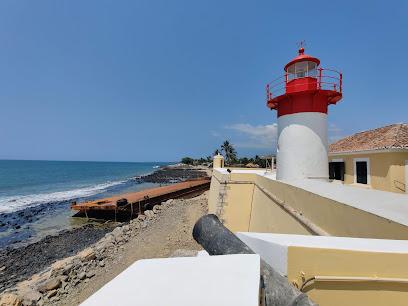
Rolas Island
Discover the serene beauty and vibrant culture of Rolas Island, a hidden gem in São Tomé and Príncipe, perfect for relaxation and adventure.
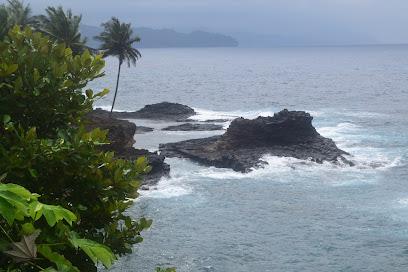
Praia das Sete Ondas
Experience the breathtaking beauty and tranquility of Praia das Sete Ondas, a stunning beach paradise in São Tomé and Príncipe.
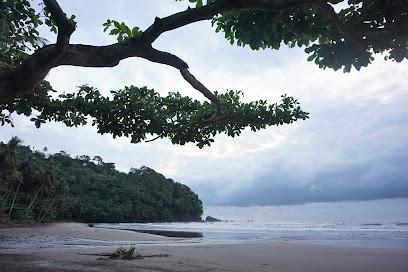
Praia Piscina
Experience the breathtaking beauty of Praia Piscina, a serene beach in São Tomé, perfect for relaxation and marine exploration.
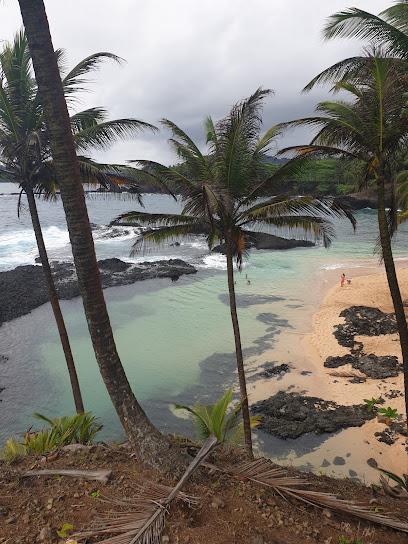
Roça Água-Izé
Explore Roça Água-Izé, an open-air museum in São Tomé showcasing the island's rich agricultural history amidst stunning natural beauty.
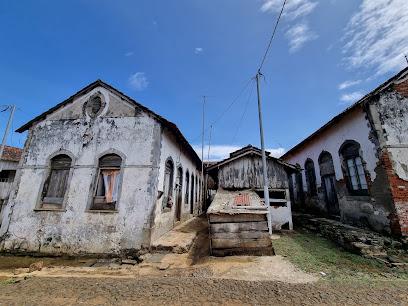
Praia Micondo
Experience the untouched beauty of Praia Micondo, a serene beach in São Tomé and Príncipe, perfect for relaxation and adventure.
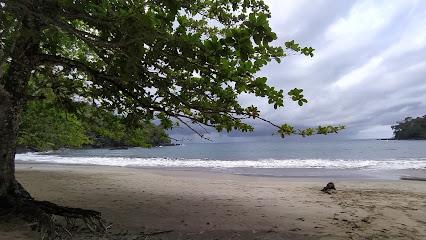
Cascata de Praia Pesqueira
Experience the enchanting beauty of Cascata de Praia Pesqueira, a must-visit scenic spot in São Tomé and Príncipe, surrounded by nature's wonders.
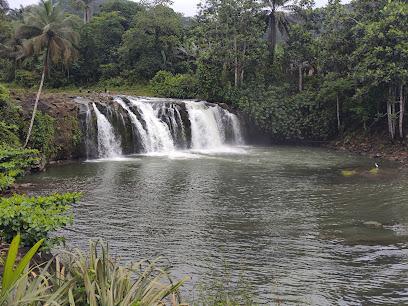
Experience Trindade - Porto
Explore the rich history and breathtaking architecture at Experience Trindade, a unique museum and church in the heart of Porto, Portugal.
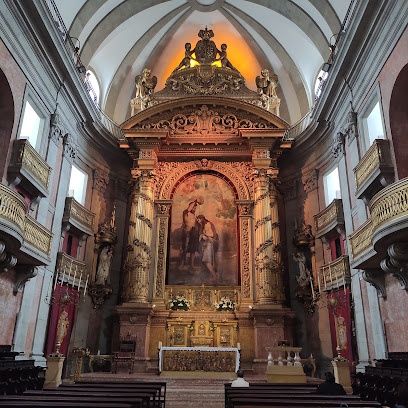
Praia Jale
Experience the breathtaking beauty of Praia Jale, a serene beach paradise in São Tomé and Príncipe, perfect for relaxation and nature exploration.
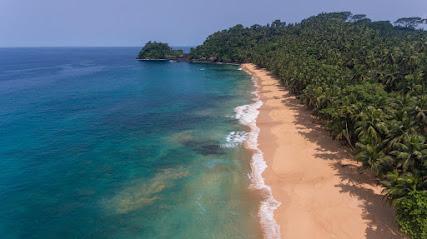
Praia Grande
Experience the tranquility and beauty of Praia Grande, a stunning beach destination in São Tomé and Príncipe, perfect for relaxation, adventure, and cultural exploration.
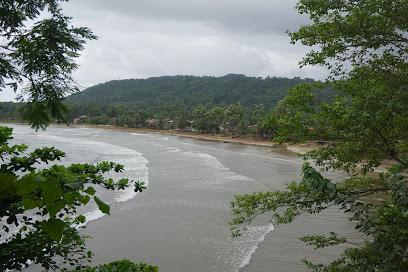
Essential places to dine
Papa-Figo
Experience authentic São Toméan cuisine at Papa-Figo – where local flavors meet warm hospitality in the heart of São Tomé.
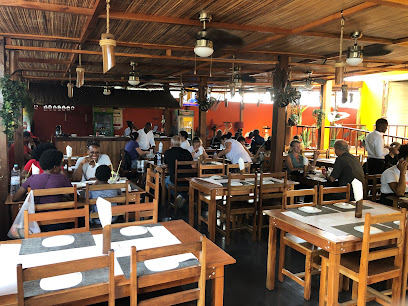
Casa Museu Almada Negreiros
Explore Casa Museu Almada Negreiros: A vibrant celebration of art and culture in Sao Tome showcasing the genius of Almada Negreiros.
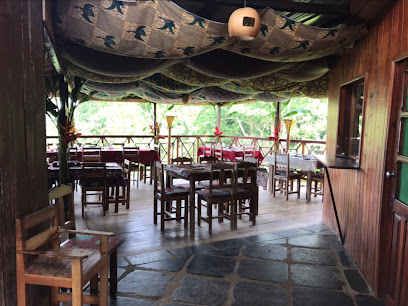
O Pirata
Experience authentic São Toméan flavors at O Pirata – where culinary excellence meets vibrant culture.
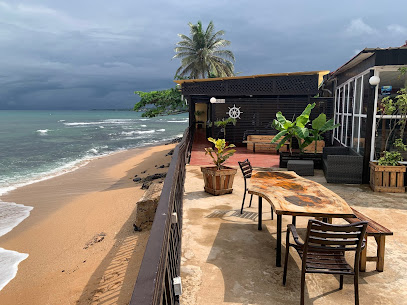
Dona Teté
Experience authentic Creole cuisine at Dona Teté in São Tomé - where every meal tells a story of island flavors.
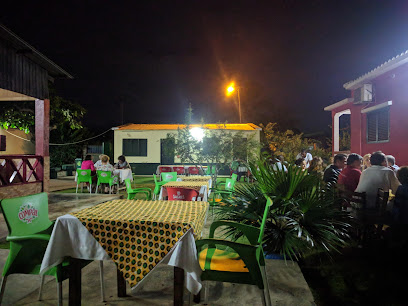
Petisqueira Santola
Experience authentic regional flavors at Petisqueira Santola in Neves – where seafood meets tradition in a cozy dining atmosphere.
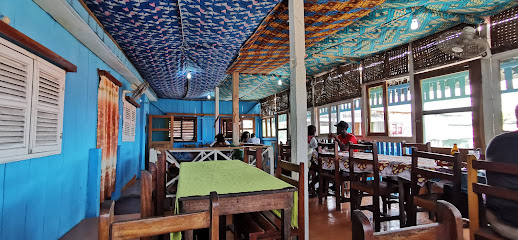
Miónga
Discover authentic flavors at Miónga, a beloved restaurant in São João dos Angolares offering traditional dishes made from fresh local ingredients.
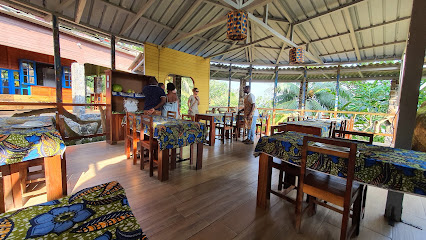
Monte Mar Restaurante São Tomé
Experience exceptional local cuisine with breathtaking ocean views at Monte Mar Restaurante in São Tomé.
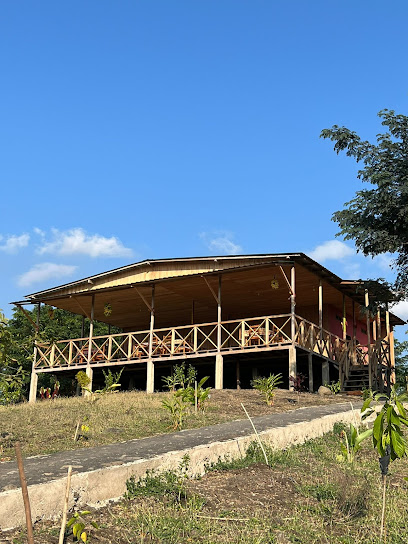
90 Graus Esplanada Bar
Discover mouthwatering pizzas and vibrant atmosphere at 90 Graus Esplanada Bar in São Tomé e Príncipe.
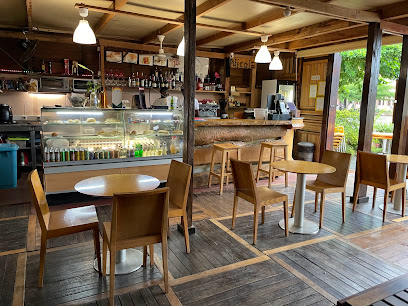
Xico's Café
Discover the flavors of São Tomé at Xico's Café - a delightful restaurant blending local cuisine with international flair.
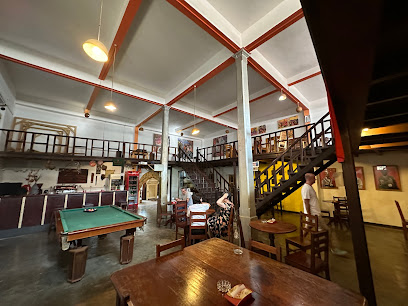
Filomar
Discover the heart of Creole cuisine at Filomar in São Tomé—where every dish tells a story and every flavor delights.
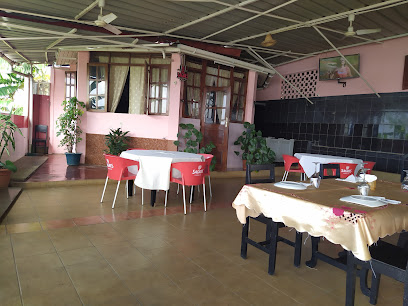
CARAMBOLA
Discover the flavors of São Tomé at CARAMBOLA - where local tradition meets modern culinary excellence.
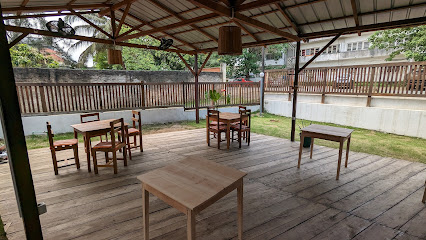
Firma Efraim
Experience delightful cuisine and aromatic coffee at Firma Efraim Café in beautiful Monte Café.
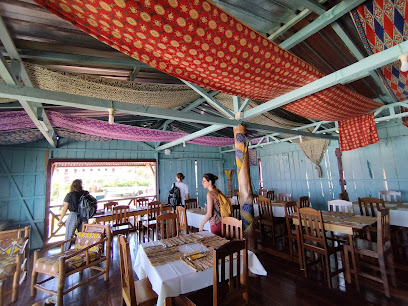
Zima restaurante Bar
Discover the vibrant flavors of São Tomé at Zima Restaurante Bar - where unique cocktails meet exquisite cuisine in a lively setting.
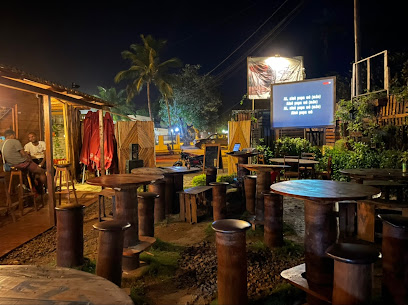
Xquizeat
Experience authentic São Toméan cuisine at Xquizeat, where vibrant flavors and local traditions come together in an unforgettable dining experience.
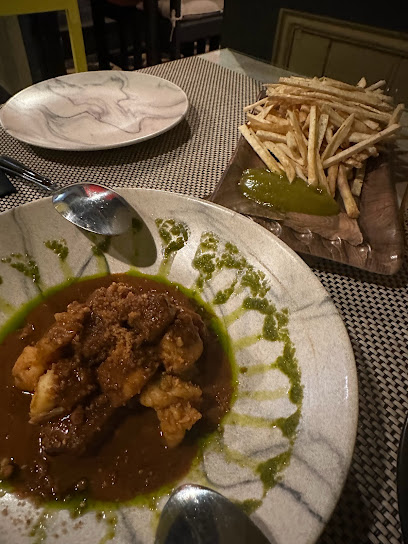
Casa Cantagalo Restaurante Leve Leve
Experience family-friendly dining at Casa Cantagalo Restaurante Leve Leve in Santana, where delicious meals meet warm hospitality.
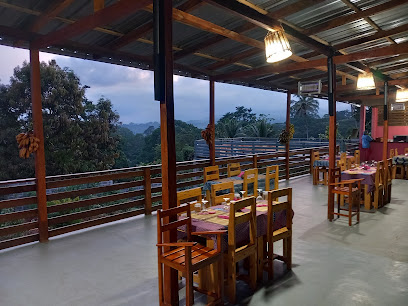
Markets, malls and hidden boutiques
Pingo Doxi Trindade
Discover local flavors and international goods at Pingo Doxi Trindade, a vibrant supermarket in the heart of Trindade.
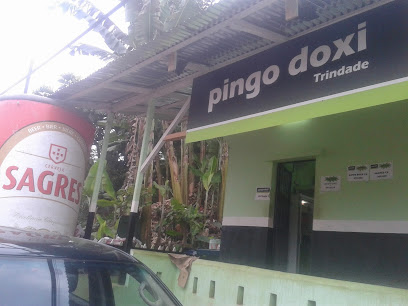
Mercado Municipal da Trindade
Discover the local charm and vibrant offerings at Mercado Municipal da Trindade, a cultural gem for tourists in Trindade.
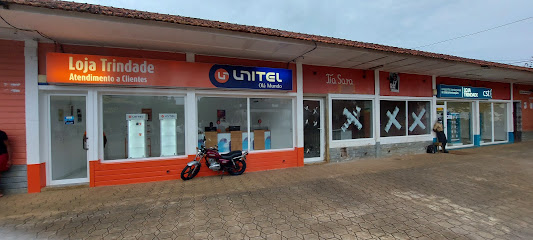
Jorge Vacas
Explore unique local fashion at Jorge Vacas in São Tomé, where vibrant colors and traditional craftsmanship come together for an unforgettable shopping experience.
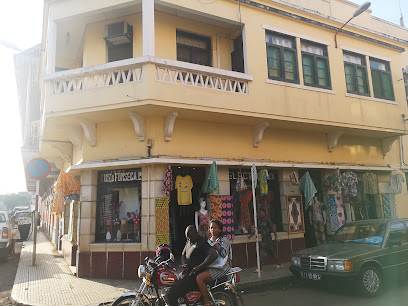
Boutique Otília
Explore unique local crafts and gifts at Boutique Otília, a charming store in Neves celebrating the artistry of the region.
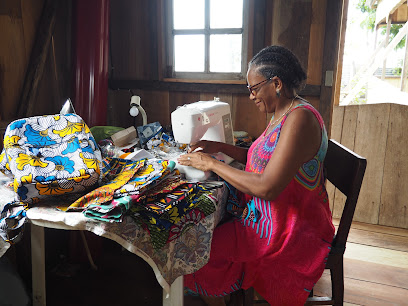
Loja de artesanato São Tomé e príncipe
Discover the unique blend of handcrafted artistry and traditional pies at Loja de Artesanato in Trindade, São Tomé and Príncipe.
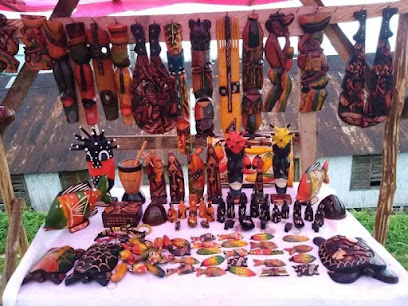
A LOJINHA
Discover unique home goods and artisanal crafts at A Lojinha, a charming store in São Tomé reflecting the island's rich culture and craftsmanship.
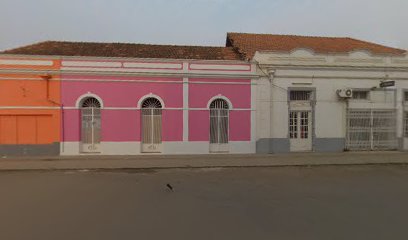
IKIN
Explore IKIN in São Tomé – a treasure trove of local crafts and unique souvenirs that capture the island's rich culture and artistry.
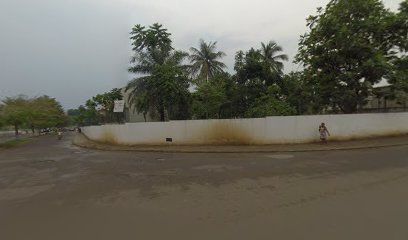
Loja LI
Explore Loja LI in São Tomé for an unforgettable shopping experience filled with local crafts, stylish fashion, and vibrant island culture.
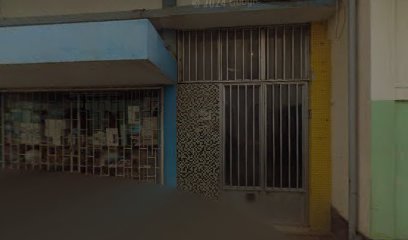
Onosildo Viegas
Experience the exquisite flavors of Trindade at Onosildo Viegas, where artisanal ice cream meets local traditions in every delicious scoop.

Loja Brasilidade
Explore Loja Brasilidade in São Tomé for unique footwear that embodies local craftsmanship and vibrant culture.
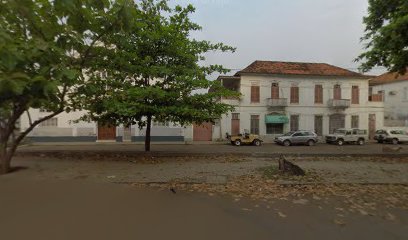
Sapataria e moda praia Brasilidade
Explore unique footwear options at Sapataria e Moda Praia Brasilidade in São Tomé, where local fashion meets comfort and style.

Melissa Silva
Explore Trindade's finest formal wear at Melissa Silva, where elegance meets style for all your special occasions.
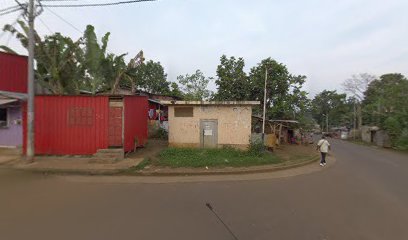
Loja da Baba
Explore Loja da Baba in São Tomé for unique local crafts and a taste of island culture through its vibrant handmade goods.
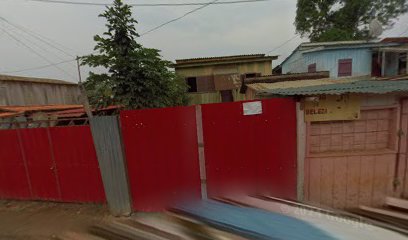
Mercado Vida
Discover the vibrant Mercado Vida in Pinheira, where local goods, handicrafts, and fresh produce create an authentic cultural experience.

Agostinha Moreno e Trindade
Discover unique souvenirs and local crafts at Agostinha Moreno e Trindade on stunning Ilhéu das Rolas, a treasure trove for travelers seeking authenticity.
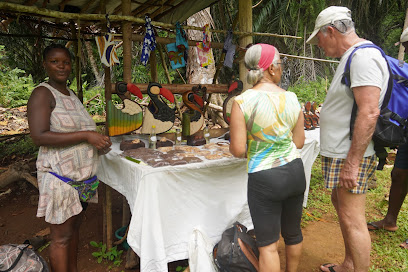
Essential bars & hidden hideouts
BBC/Abaya da Bôo
Discover the lively atmosphere and great drinks at BBC/Abaya da Bôo, the perfect bar for tourists in São Tomé to relax and socialize.
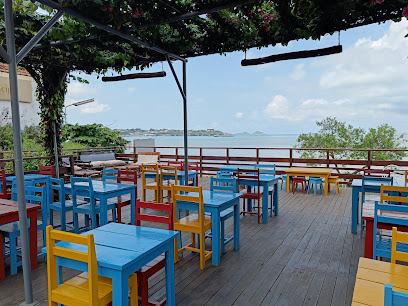
Fundador
Discover Fundador, a vibrant bar in São Tomé, where local flavors, refreshing drinks, and lively ambiance collide in an unforgettable nightlife experience.
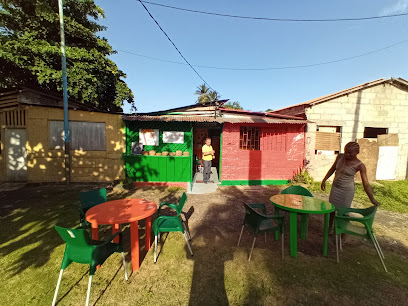
Caipirinha Tropical
Experience the vibrant nightlife of São Tomé at Caipirinha Tropical, where every cocktail tells a story and every night is a celebration.
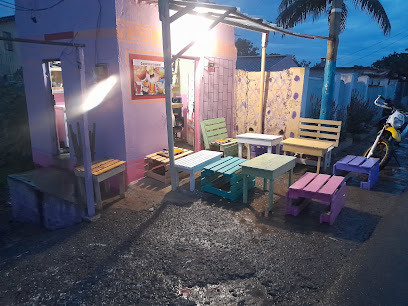
Bar cantinho dos silva Água Boia
Experience the vibrant nightlife at Bar Cantinho dos Silva Água Boia in São Tomé, where refreshing drinks and a friendly atmosphere await.
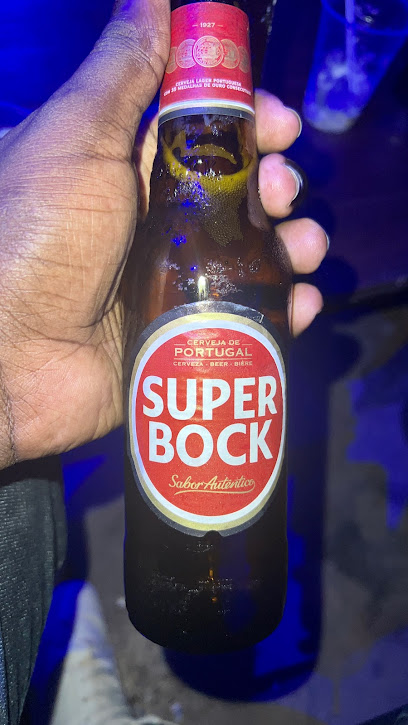
Kay Shisha
Discover the vibrant nightlife of São Tomé at Kay Shisha, where flavorful drinks and shisha create an unforgettable experience.
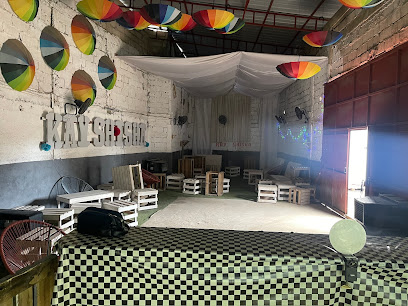
Maravilha
Discover the flavors of Trindade at Maravilha, a culinary destination that offers an exquisite dining experience with a focus on local ingredients and hospitality.
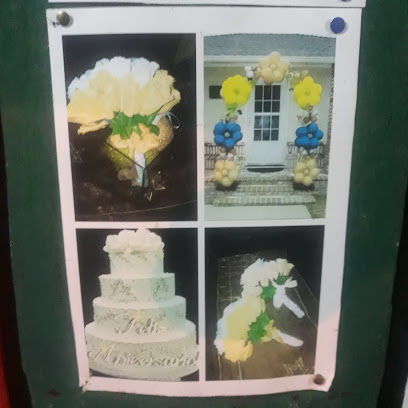
A Sombra da Coleira
Experience the vibrant nightlife at A Sombra da Coleira, a cozy bar in São Tomé offering a delightful selection of drinks and a warm, inviting atmosphere.
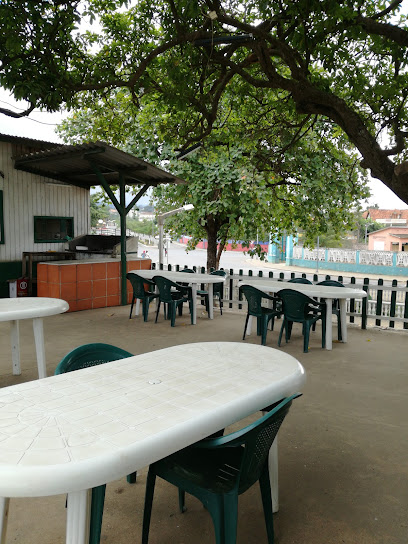
Restaurante Boa Saúde
Experience the authentic flavors of Trindade at Restaurante Boa Saúde, a beloved local eatery dedicated to fresh ingredients and traditional dishes.
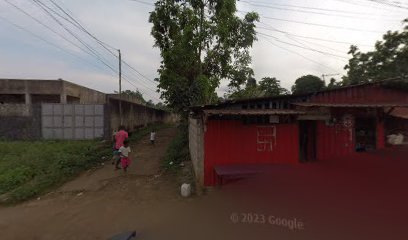
Confidencial gin lover's
Experience the vibrant nightlife of São Tomé at Confidencial, a haven for gin lovers with a diverse selection and a lively atmosphere.
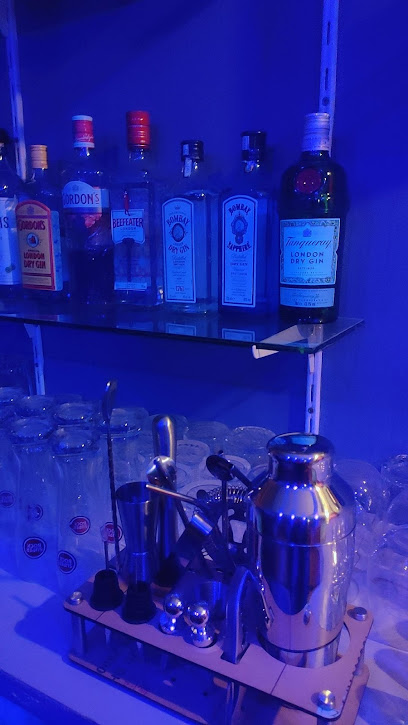
Bar B7 Park Popular
Discover the vibrant atmosphere of Bar B7 Park in São Tomé, where refreshing drinks and friendly vibes await every visitor.
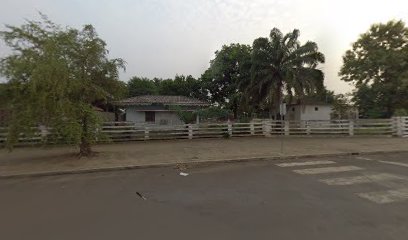
Tropical Verde
Discover the serene charm of Tropical Verde, a cozy bar in São Tomé, perfect for unwinding with tropical drinks and local flavors.
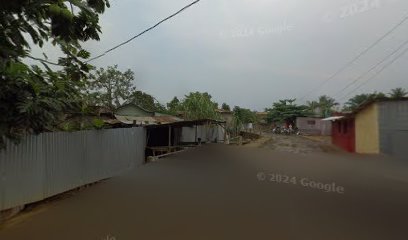
Roulot Tio Ching
Experience the authentic flavors of Trindade at Roulot Tio Ching, where local cuisine meets warm hospitality in a charming setting.
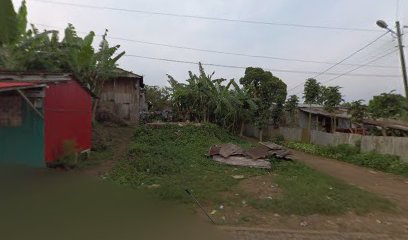
Bar do Bairro dos Casados
Discover the vibrant tastes of Africa at Bar do Bairro dos Casados, your go-to bar and grill in Santana for unforgettable flavors and a lively nightlife.
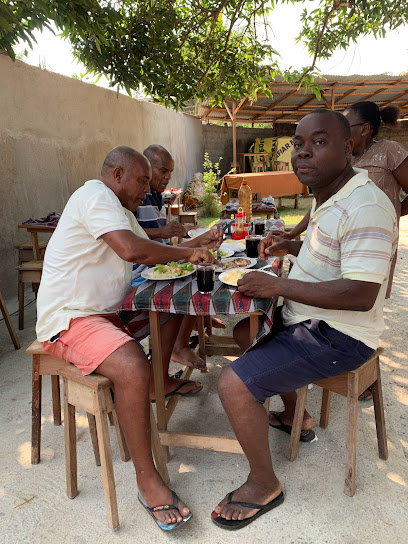
Nay giggas after school club
Experience São Tomé's vibrant nightlife at Nay Giggas After School Club, a welcoming gay bar perfect for socializing and entertainment in a colorful atmosphere.

RUTH LIMA
Ruth Lima in Cruzeiro: A vibrant bar experience with refreshing drinks, live music, and a welcoming atmosphere amidst local culture.
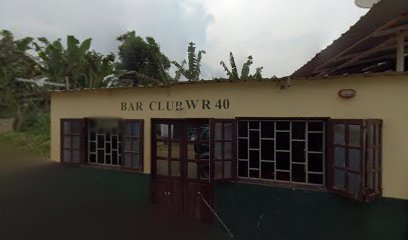
Local Phrases
-
- HelloOlá
[oh-lah] - GoodbyeAdeus
[ah-deh-oos] - YesSim
[seem] - NoNão
[naw] - Please/You're welcomePor favor/De nada
[por fah-vohr/deh nah-dah] - Thank youObrigado
[oh-bree-gah-doo] - Excuse me/SorryCom licença/Desculpa
[kohm lee-sen-sah/deh-skool-pah] - How are you?Como está?
[koh-moh ehs-tah] - Fine. And you?Bem. E você?
[bane/eh voh-seh] - Do you speak English?Fala inglês?
[fah-lah een-glehsh] - I don't understandNão entendo
[naw ehn-tehn-doo]
- HelloOlá
-
- I'd like to see the menu, pleaseGostaria de ver o menu, por favor
[goh-stah-ree-ah deh vehr ooh meh-noo/por fah-vohr] - I don't eat meatNão como carne
[naw koh-moh kahr-neh] - Cheers!Saúde!
[sah-oo-deh] - I would like to pay, pleaseGostaria de pagar, por favor
[goh-stah-ree-ah deh pah-gahr/por fah-vohr]
- I'd like to see the menu, pleaseGostaria de ver o menu, por favor
-
- Help!Socorro!
[soh-koh-roh] - Go away!Vai embora!
[vah-ee ehm-boh-rah] - Call the Police!Chamar a Polícia!
[shah-mahr ah poh-lees-ee-ah] - Call a doctor!Chamar um médico!
[shah-mahr oom meh-dee-koo] - I'm lostEstou perdido
[eh-stoh pehr-dee-doo] - I'm illEstou doente
[eh-stoh doo-ehn-teh]
- Help!Socorro!
-
- I'd like to buy...Gostaria de comprar...
[goh-stah-ree-ah deh kohm-prahr] - I'm just lookingEstou só a ver
[eh-stoh soh ah vehr] - How much is it?Quanto custa?
[kwan-toh koos-tah] - That's too expensiveIsso é muito caro
[ee-soh eh moo-ee-toh kahr-oo] - Can you lower the price?Pode baixar o preço?
[poh-deh bahy-shahr ooh preh-soo]
- I'd like to buy...Gostaria de comprar...
-
- What time is it?Que horas são?
[keh oh-rahz sah-oo] - It's one o'clockÉ uma hora
[eh oo-mah oh-rah] - Half past (10)Meia hora (10)
[may-ah oh-rah (deez)] - MorningManhã
[mahn-yah] - AfternoonTarde
[tahr-deh] - EveningNoite
[noy-teh] - YesterdayOntem
[ohn-tehm] - TodayHoje
[oh-zheh] - TomorrowAmanhã
[ah-mahn-yah] - 1Um
[oom] - 2Dois
[doh-ees] - 3Três
[trehs] - 4Quatro
[kwah-troh] - 5Cinco
[seen-koh] - 6Seis
[saysh] - 7Sete
[seh-teh] - 8Oito
[oy-toh] - 9Nove
[noh-veh] - 10Dez
[dehz]
- What time is it?Que horas são?
-
- Where's a/the...?Onde fica o/a...?
[ohn-deh fee-kah ooh/ah] - What's the address?Qual é o endereço?
[kwahl eh ooh ehn-deh-reh-soh] - Can you show me (on the map)?Pode me mostrar (no mapa)?
[poh-deh meh moh-strahr/noh mah-pah] - When's the next (bus)?Quando é o próximo (autocarro)?
[kwan-doo eh ooh proh-see-moh/ow-toh-kah-roo] - A ticket (to ....)Um bilhete (para ....)
[oom beel-yeh-teh/pah-rah]
- Where's a/the...?Onde fica o/a...?
History of Trindade
-
Trindade, like the rest of São Tomé and Príncipe, was first discovered by Portuguese explorers in the late 15th century. The islands were uninhabited, and the Portuguese quickly established sugarcane plantations, making use of enslaved Africans for labor. Trindade's fertile land was instrumental in the early success of these plantations, setting the stage for the area's agricultural significance.
-
In the late 19th century, the decline of sugarcane production led to the rise of cocoa as the primary cash crop. Trindade became a focal point for cocoa plantations, contributing significantly to São Tomé and Príncipe's status as one of the world's largest cocoa producers by the early 20th century. The labor-intensive nature of cocoa farming brought about harsh working conditions for local workers and contract laborers.
-
Trindade is home to numerous examples of Portuguese colonial architecture. The town's layout and many of its buildings reflect the architectural styles brought by the colonizers, including distinctive features like terracotta roofs, tiled facades, and ornate churches. These structures serve as a testament to the town's historical importance and colonial past.
-
The struggle for independence from Portuguese rule gained momentum in the mid-20th century, affecting regions across São Tomé and Príncipe, including Trindade. The town played a role in the independence movement, with local leaders and residents participating in protests and political activities. The country ultimately achieved independence on July 12, 1975, marking a significant turning point in Trindade's history.
-
After gaining independence, Trindade, like much of São Tomé and Príncipe, faced economic challenges. The decline of the cocoa industry and a lack of infrastructure development impacted the town's growth. However, efforts have been made to diversify the economy and improve living conditions, with tourism emerging as a potential avenue for economic revitalization.
-
Trindade is known for its vibrant cultural festivals, which celebrate the town's rich heritage and traditions. One of the most notable events is the 'Festa de São João,' a religious and cultural festival featuring music, dance, and culinary delights. These festivals offer a glimpse into the local way of life and the enduring cultural practices of the community.
Trindade Essentials
-
Trindade is located on the island of São Tomé, part of São Tomé and Príncipe. The main gateway to the island is São Tomé International Airport (TMS). From the airport, Trindade is roughly a 30-minute drive away. You can take a taxi or arrange for a pick-up service through your hotel. Car rentals are also available at the airport for those who prefer to drive themselves.
-
Trindade is a small town, and many attractions are within walking distance. Local taxis are widely available and can be flagged down on the street or booked through your accommodation. Public minibuses, known as 'hiaces', operate on fixed routes and are an inexpensive way to get around, though they can be crowded. Car rentals provide more flexibility for exploring outlying areas.
-
The official currency is the São Tomé and Príncipe Dobra (STN). Credit cards are accepted in some hotels, restaurants, and shops, but it is advisable to carry cash, especially in smaller establishments. ATMs are available, but it is wise to withdraw sufficient cash upon arrival at the airport or in the capital city, São Tomé.
-
Trindade is generally a safe destination for tourists. However, petty crimes like pickpocketing can occur, especially in crowded areas. It's best to avoid walking alone at night in poorly lit areas. Always keep an eye on your belongings and use hotel safes for valuables. Some neighborhoods in São Tomé city, like Bairro Militar, have higher crime rates and should be avoided, especially after dark.
-
In case of an emergency, dial 112 for immediate assistance. Trindade has basic medical facilities, but for more serious health issues, you may need to go to a hospital in São Tomé city. It's highly recommended to have travel insurance that covers medical emergencies and evacuation. Pharmacies are available for over-the-counter medications.
-
Fashion: Do dress modestly, especially when visiting religious sites. Avoid wearing overly revealing clothing. Religion: Do respect local customs. When visiting churches, dress conservatively and behave respectfully. Public Transport: Do be courteous and give up your seat for elderly passengers. Don’t eat or drink on public transport. Greetings: Do greet people with a handshake and a smile. A respectful nod can also be appropriate. Eating & Drinking: Do try local dishes and accept food offerings graciously. Don’t refuse hospitality, as it is considered impolite.
-
To experience Trindade like a local, visit the local markets where you can buy fresh produce and traditional goods. Engage with the locals, as they are often friendly and willing to share stories about their culture and history. Don’t miss the chance to explore the lush rainforest and waterfalls nearby. For an authentic experience, try the local dish 'calulu', a fish or meat stew with vegetables.
Trending Landmark in Trindade
-
Praia Inhame Eco Lodge
-
Saint Nicholas Waterfall
-
Equator Landmark
-
Jardim Botânico do Bom Sucesso
-
Claudio Corallo - Cacao & Caffe São Tomé e Príncipe
-
Praia das Sete Ondas
-
São Sebastião Museum
-
90 Graus Esplanada Bar
-
Aeroporto Internacional de São Tomé e Príncipe
-
Praia dos Tamarindos
-
São Tomé Paradise Tours
-
Roça Água-Izé
-
Praia Micondo
-
Praia Lagarto
-
Obo National Park
Nearby Cities to Trindade
-
Things To Do in Sao Tome City
-
Things To Do in Guadalupe
-
Things To Do in Ribeira Afonso
-
Things To Do in Neves
-
Things To Do in Angolares
-
Things To Do in Santa Catarina
-
Things To Do in Santo Antonio
-
Things To Do in Libreville
-
Things To Do in Mbini
-
Things To Do in Luba
-
Things To Do in Lambaréné
-
Things To Do in Malabo
-
Things To Do in Kribi
-
Things To Do in Limbe
-
Things To Do in Port Harcourt







